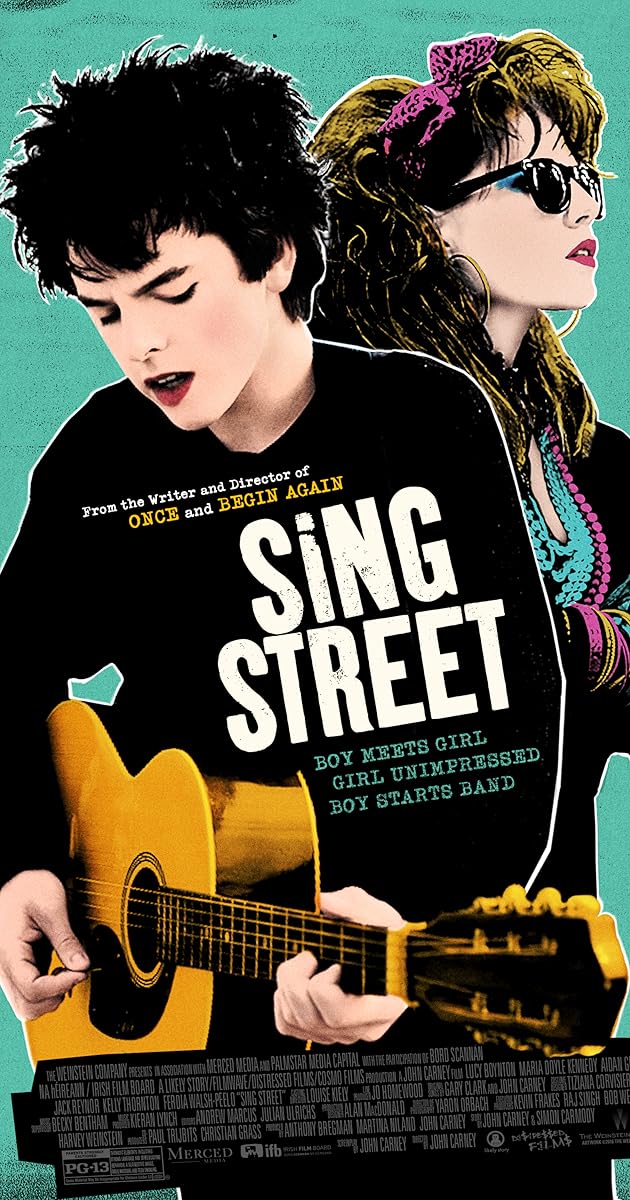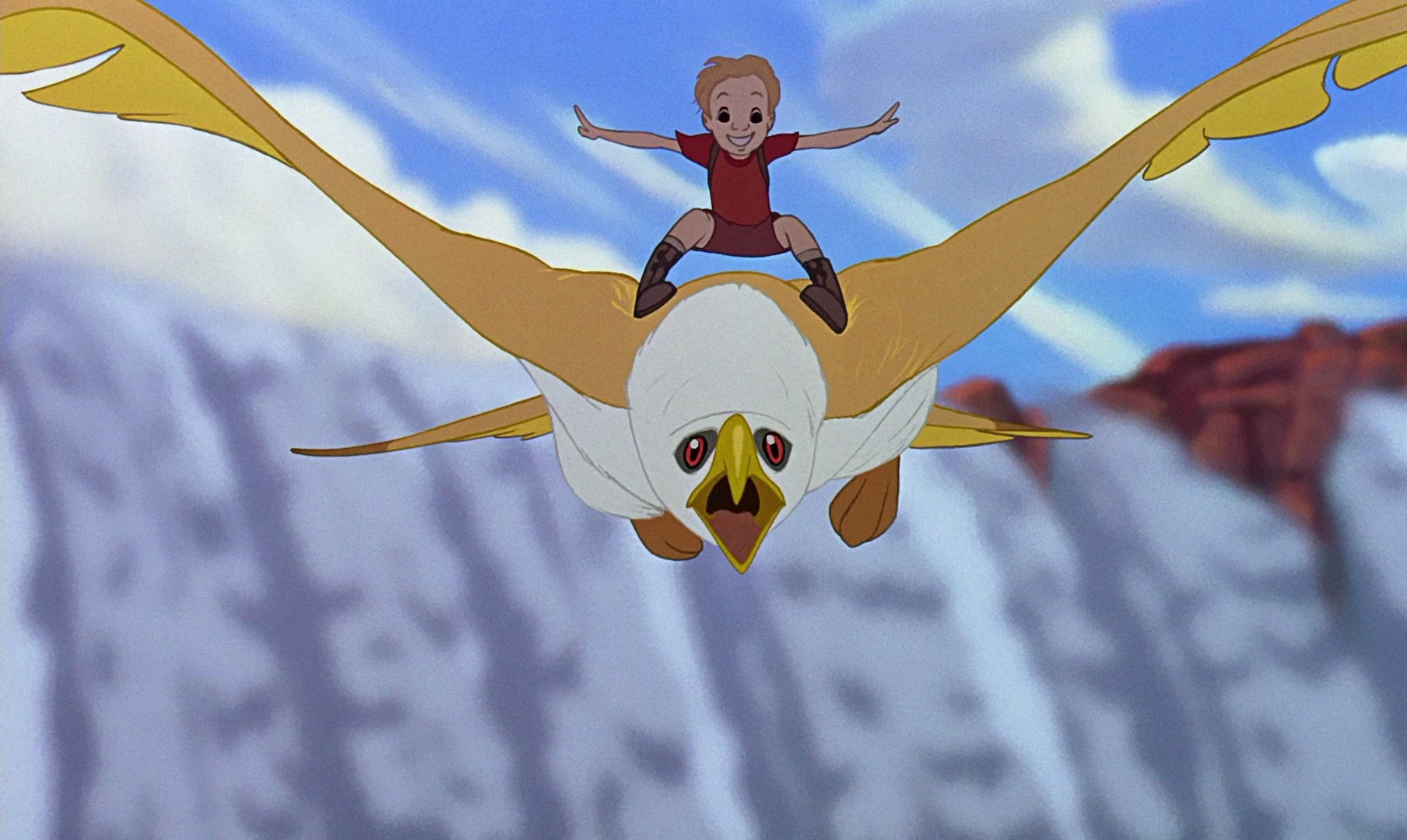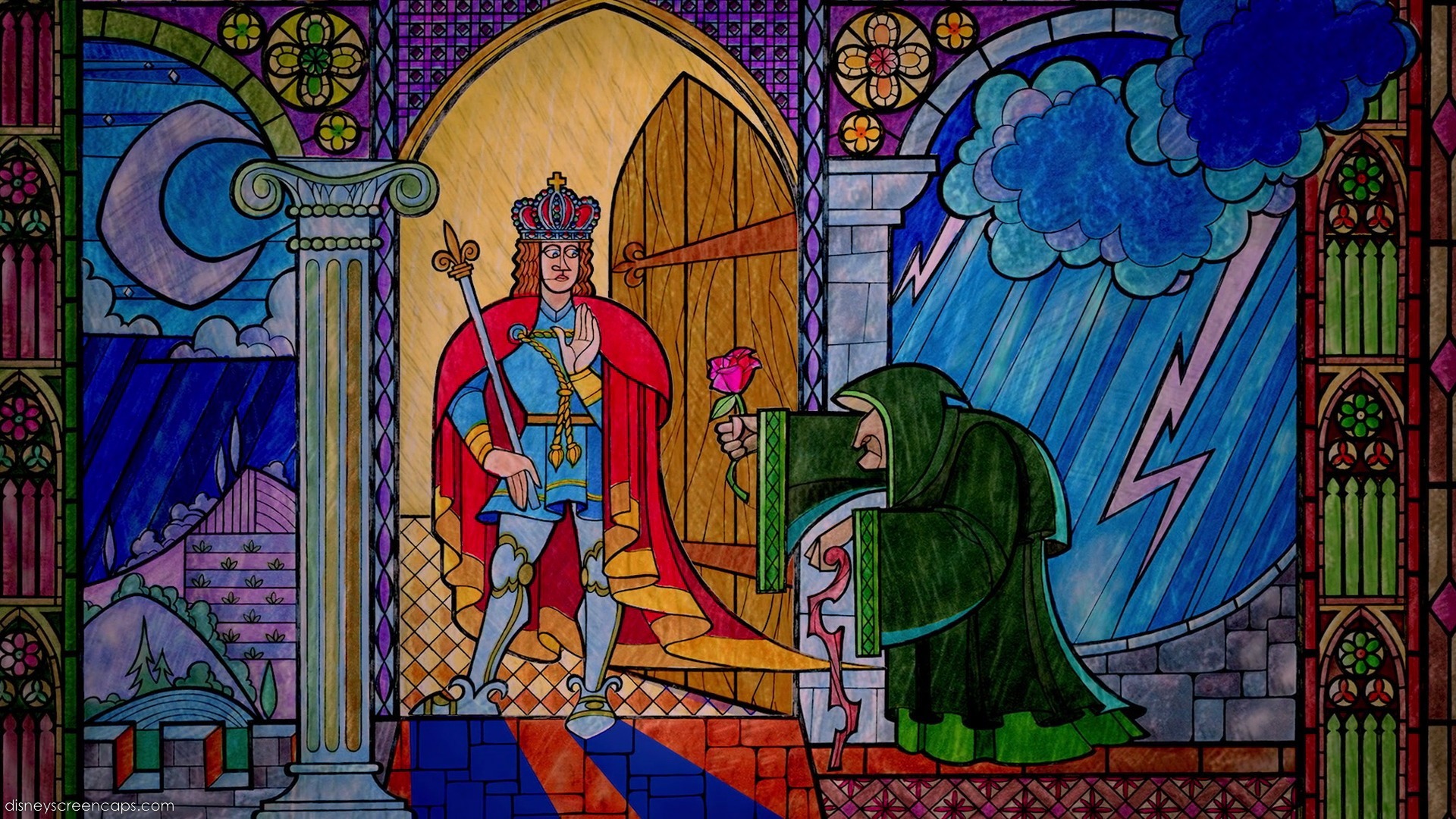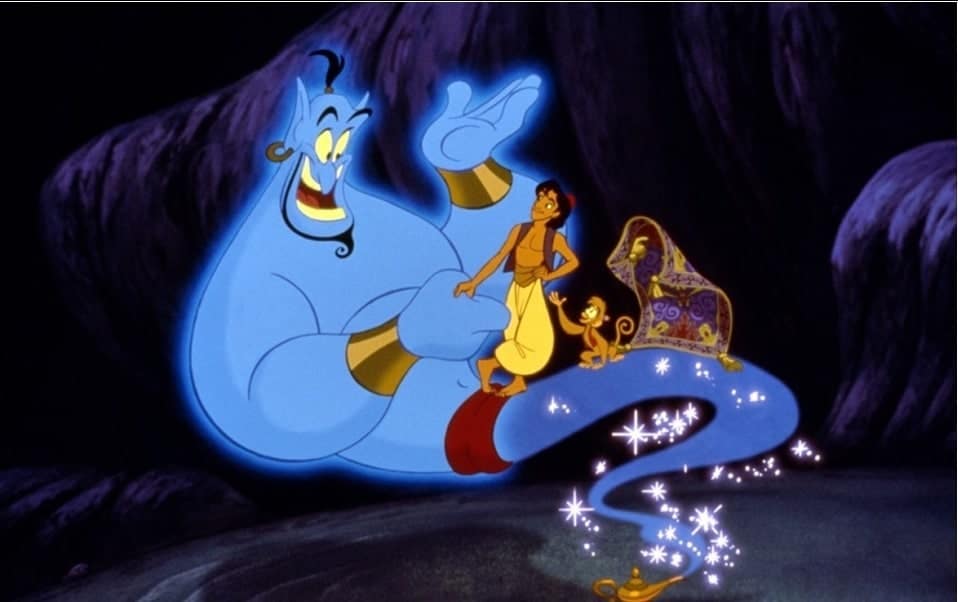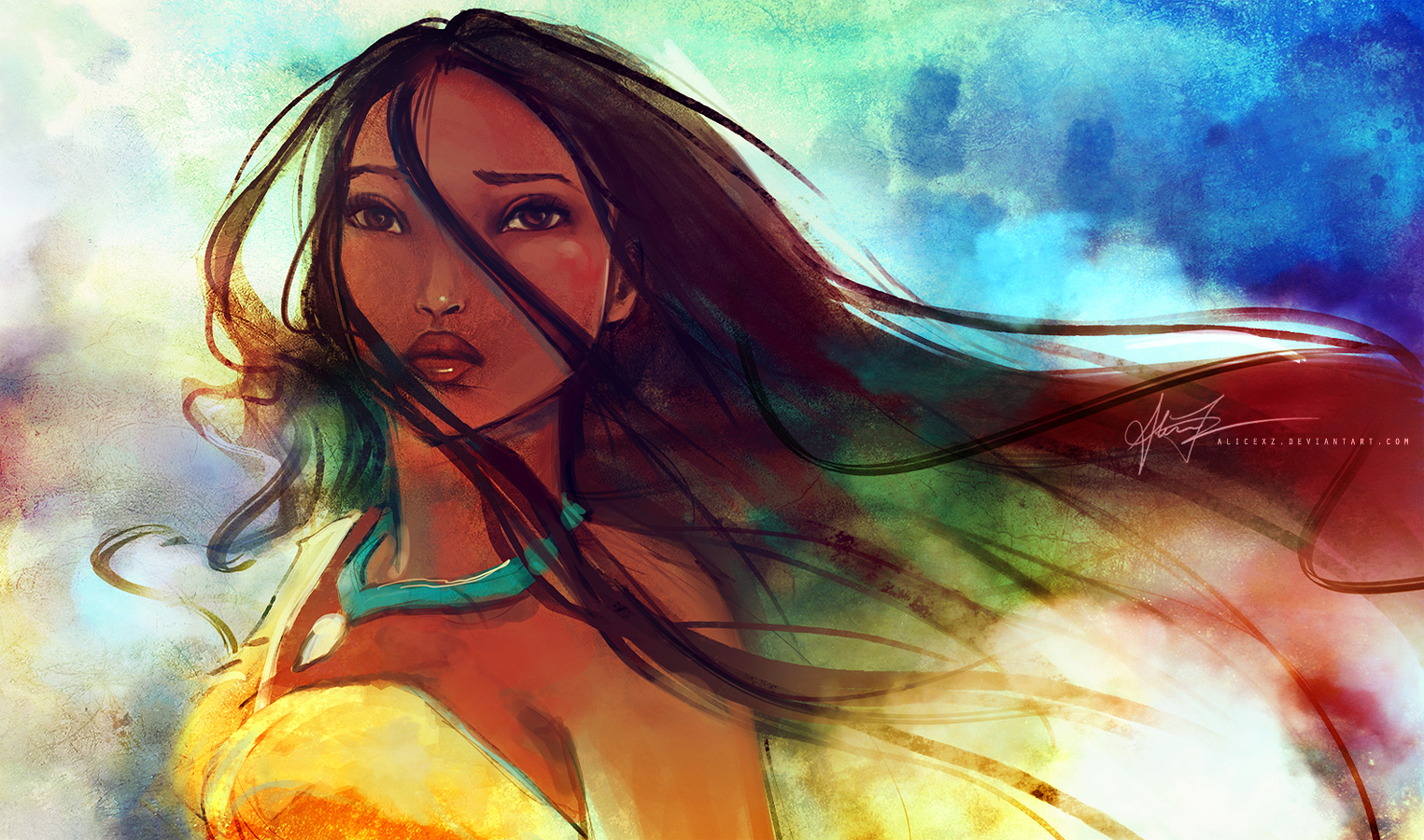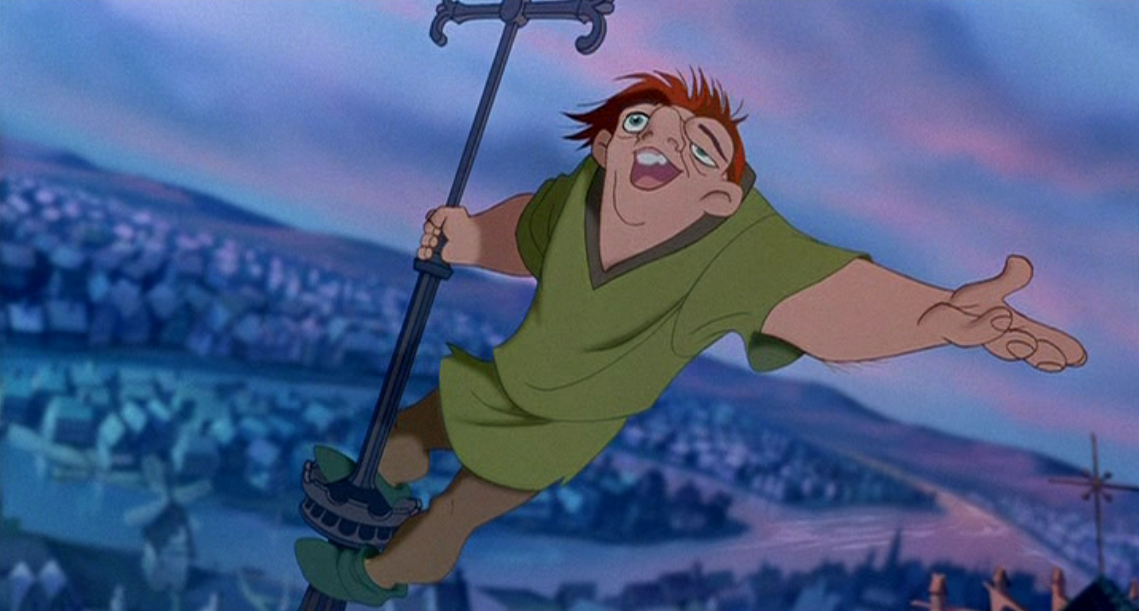10. The Lobster
The Lobster is horrifying, thought provoking, funny, and build on a deeply strange concept: A dystopian world where being single is illegal anyone who finds themselves outside of a relationship must go to a hotel where they must find a new partner within 45 days or they are turned into the animal of their choosing. The M.O. here seems to be to take all the unhealthy attitudes and hangups that tend to manifest themselves in modern relationships and magnify them until they reach the level of dogma. Much like Black Mirror creates terrifying scenarios in exploring potential evolutions of current technological trends, The Lobster spins a similar sort of nightmare out of our approaches to sex and dating. It won’t be for everyone, but it’s fascinating nonetheless.
9. Hunt for the Wilderpeople
A warm, charming, big-hearted comic adventure that I would easily recommend to just about anyone. Hunt for the Wilderpeople tells the story of Ricky Baker, a troubled, overweight young ward of the state who is sent to live with a new foster family in the mountains of New Zealand. Although the gruff, survivalist man of the house Hec (played brilliantly by Sam Neil) initially wants absolutely nothing to do with Ricky. But following a series of mishaps, Hec and Ricky must flee into the wilderness together, sparking a nationwide manhunt and elevating them to folk hero status. This is a buddy film of the highest order, and while it all plays out the way you would expect with a plot like that, you’ll be too busy laughing and smiling to complain. It was also shot in New Zeland, which is cheating.
8. The Witch
A beautiful and deeply unsettling tale of religious dread, The Witch tells the story of a family of puritan settlers who are banished from their plantation and encounter evil forces out in the forest where they make their new home. The meticulously researched production leads to an authenticity that completely drew me in (though some may have difficulty with the period-accurate dialogue. Subtitle it if you must). Although there is Witch (spoiler), the day-to-day hardships of surviving in exile and the rigidly harsh theology they cling to would have cast a cloud of fear and anxiety over this story even absent any supernatural elements. That character certainly intensifies things and allows for some truly creepy imagery, but like The Shining, it’s most obvious cinematic ancestor, The Witch creates horror and tension through subtle manipulation of mood and the buildup of small details: the way the camera stalks a character through the woods, the way certain sounds are absent from a scene, the way the movie seems to slip into dream logic. It’s one of the most formally effective films of the year and a masterclass in tone. The titular Witch is there, but are these events her design, or is she merely the final push that causes an already fragile family structure to collapse? Did the Devil find them in the woods, or was he inside all along? The ambiguity is wonderful.
7. Hell or High Water
A expertly crafted revisionist western slash heist film with well-rounded, morally ambiguous characters. Hell or High Water follows two brothers (Chris Pine as the calculating and determined Toby and Ben Foster as the thrill seeking Tanner) who embark upon a series of bank robberies in an attempt to save their family farm, with a Jeff Bridges and Gil Birmingham as the Texas Rangers charged with stopping them. The script by Taylor Sheridan is smarter than his previous film (Sicario), with more believable and nuanced characters and more moments of levity than that one had. Director David Mackenzie pulls off his most well-paced and accessible production yet and gives the film a strong sense of place. Here we get the forgotten corners of America, and a focus on the resentment that the ordinary folks who live in those small towns increasingly feel towards the corporate powers that be. That conflict creates an interesting thread of suspense and moral uncertainty that runs through the film. At what point do these brother’s cross the line from Robin Hood-esque vigilantism to destructive criminality? Will the damage they caused be limited to the people and institutions who deserve it, or will innocents be caught in the crossfire? It’s the way McKenzie handles these questions and the tension he draws from them that elevates Hell or High Water above a simple neo-western.
6. Hail Caesar!
A loving ode to Faith, Old Hollywood, and the notion that movies can do more than merely entertain us. As Eddie Mannix, the fixer responsible for reining in the excesses of the varied actors, directors, and other assorted denizens of this fictional Hollywood studio, we follow Josh Brolin as the straight man in a stream of wonderfully comic situations performed by an ensemble cast of some of the best actors working today, all of them fully willing to ham it up in fine style. But a mere exercise in absurdity wouldn’t be good enough for the Coens. Hail Caesar! also presents Mannix as an interesting sort of Christ figure taking on the sins of others and trying to keep his flawed flock moving in the right direction.
5. Sing Street
Sing Street is pure joy. I feel like anyone who doesn’t feel happy after watching this movie should probably seek mental health care because something inside is clearly broken. It’s a familiar story: Boy meets girl, boy wants to get laid, boy decides to start a band (as you do). As it turns out, this particular boy has some actual musical talent. So while Sing Street has a lot of the trappings of a typical coming-of-age teen comedy (difficult parents, tyrannical educators, bullies, a love story, etc), it’s mostly about learning to express yourself capturing the thrill of the creative process. It’s also set in the 80’s, at the dawn of the music video era, so in addition to some great songwriting montages, you get to see them develop their visual creativity as they try to create amature music videos and craft their overall presentation as a band. The movie is also really funny and energetic, with lots of inventive visual touches (and sight gags). It rounds out its characters in interesting ways. I didn’t expect Ralphina to evolve from mere object of desire to intelligent and competent collaborator, or the glimpse into the bully character’s home life, or the many other revealing little character details. But lastly, and most importantly: The music is really, really good.
4. The Handmaiden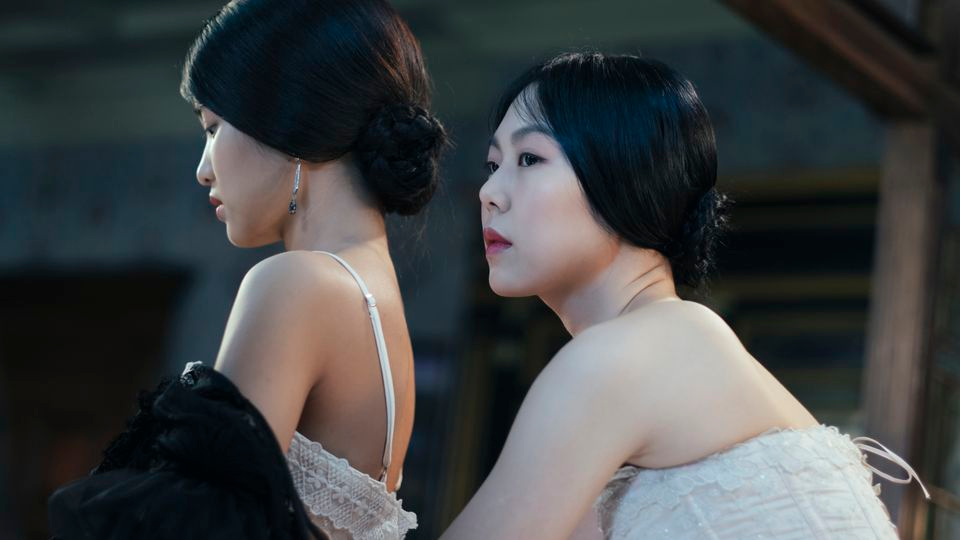
A gripping and audacious erotic thriller. Park Chan-wook proves his complete mastery of the cinematic form, with every shot and edit feeling perfectly calculated for maximum impact, especially when the story’s many twists and turns kick in. The movie succeeds primarily because of how masterfully it manipulates perspective, locking the audience inside one character’s point of view and then completely altering everything they know by showing them the same events through an entirely different character’s eyes. This happens multiple times, becoming more and more thrilling each time it does. Fincher and Hitchcock may be the only filmmakers I know who are this good at conning their viewers. And trust me, this movie goes to some crazy places. When it needs to, it goes as big and bold and gratuitous as anything I’ve ever seen, but balanced with enough scenes of subtle, quiet intimacy to make the moments where the film goes big feel earned. We could discuss the theme of female empowerment; there are some very creepy and very controlling men here, and women attempting to gain their independence. That’s there, and I liked it, even if I’m not sure how much of a focus that really is. The Handmaiden isn’t here as some incredibly insightful feminist treatise. The Handmaiden is here because it’s the most formally impressive film of the year; visual storytelling crafted with clockwork precision by one of the world’s greatest living filmmakers.
3. Swiss Army Man
The most batshit insane ridiculous premise of the year: A man marooned on an island finds a farting corpse which he then uses as a tool to hunt for food, chop wood, etc. in order to survive. Oh, and it’s also a buddy movie about him and the corpse becoming friends. It’s completely gross and totally weird, but packed with moments of pure beauty as well. The film puts you inside the perspective of a very lonely man who is desperate for human connection and is losing his grip on reality (clearly most of the movie is showing you his hallucinations, although it wisely doesn’t concern itself too much with what is or isn’t real). But unlike most movies involving crazy people and unreliable narrators, it’s not a dark story about mental deterioration. Unlike say, A Beautiful Mind or Black Swan, this movie uses the concept towards more inventive and uplifting ends (although there’s definitely a bit of a nod at the end to the inherent darkness of the situation, which I appreciated). I loved how the film explored the many insecurities and expectations that awkward young men (like yours truly) wrestle with when it comes to the opposite sex, and although this is certainly a wild exaggeration of those ideas, it gives the film an empathetic core which balances out all the absurdity. Paul Dano was made to play isolated, damaged characters like this and Daniel Radcliff does wonderful work with a very strange and difficult role. Finally, it would be critical malpractice not to mention the incredible, one-of-a-kind soundtrack by Andy Hull and Robert McDowell. Bottom line: basically every part of this movie seems like the kind of insanity that should never, ever work, but it does and it’s glorious.
2. Green Room
Green Room is completely gripping. It’s the most tense I’ve felt in a theater all year. It’s a very basic, straightforward plot: A struggling band on tour takes a gig at a small backwoods venue, ends up seeing some things they shouldn’t have, and find themselves trapped in a compound full of neo-nazi’s intent on killing them to cover up their crimes. Director Saulnier throws out many of the expected conventions for a film like this and creates a powerful sense of immersive immediacy to story. The violence explodes in sudden flashes and is presented in a matter of fact, undramatic way. This very grounded approach to the presentation makes the stakes feel so much higher than more artificial dangers that lesser films throw in the way of their characters. Patrick Stewart is incredible as the terrifying white supremacist leader, plus it contains the our last great performance from Anton Yelchin (R.I.P.). For anyone who loves an intense, edge-of-your-seat sort of thriller, Green Room was the best 2016 had to offer.
1. Manchester by the Sea
Manchester by the Sea is basically a perfect drama. Films this observant and this insightful and this fully formed in its rendering of the characters and the dynamics between them are incredibly rare. Casey Affleck is beyond good; he’s subtle and understated as befits a character who has turned inward in the wake of horrific tragedy, but the choices Affleck makes (or perhaps more importantly, chooses NOT to make) are incredibly purposeful and revealing. Manchester by the Sea earns every emotionally devastating moment it goes for and balances the trauma with heartwarming moments of humor and family bonding. The movie doesn’t follow the structure you would expect from this story. There is no slow buildup of interpersonal conflicts climaxing in a dramatic shouting match or gut-wrenching cathartic monologue, no neat and tidy final scene where the characters put their problems behind them. Manchester by the Sea is smarter and more patient than that. It tries instead to capture the rhythms of everyday life and to recognize that people can’t always leave their demons behind them, or turn back the clock to before those demons existed, or even preserve the present when their lives are going well. Change comes. Our lives ebb and flow like the sea, shifting between moments of pain and joy and loss and connection. The best we can do is to reach out to the people we love and hope we keep each other afloat.
